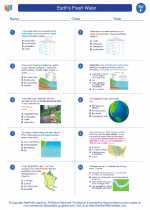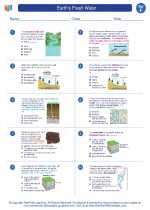What is Absorption?
Absorption is the process by which one substance takes in another substance. In the context of science, absorption can refer to the uptake of a gas, liquid, or solid by a different substance. This process can occur in various fields of science, such as chemistry, biology, and environmental science.
Types of Absorption
There are several types of absorption, including:
- Chemical Absorption: This involves the absorption of a substance into the structure of another substance through a chemical reaction.
- Physical Absorption: This refers to the process where a substance is taken in or adsorbed onto the surface of another substance without a chemical reaction taking place.
- Biological Absorption: In the context of living organisms, biological absorption involves the uptake of nutrients, water, and other substances through biological processes such as digestion and respiration.
Examples of Absorption
Examples of absorption include:
- The absorption of carbon dioxide by plants during photosynthesis.
- The absorption of water and nutrients by plant roots from the soil.
- The absorption of medication into the bloodstream after ingestion.
- The absorption of sound by soft materials, such as foam or fabric.
- The absorption of light by dark-colored surfaces.
Factors Affecting Absorption
Several factors can affect the rate and extent of absorption, including:
- The surface area available for absorption.
- The concentration gradient between the absorbing substance and the substance being absorbed.
- The nature of the substances involved, including their solubility and chemical properties.
- The temperature and pressure of the environment in which absorption occurs.
Study Guide
To study absorption effectively, consider the following key points:
- Understand the difference between chemical, physical, and biological absorption.
- Learn about specific examples of absorption in different scientific contexts.
- Explore the factors that influence absorption and how they impact the process.
- Practice applying the concept of absorption to real-world scenarios.
- Review the various methods and techniques used to measure and study absorption in different scientific fields.
◂Science Worksheets and Study Guides Sixth Grade. Earth's Fresh Water
Study Guide Earth's Fresh Water
Earth's Fresh Water  Worksheet/Answer key
Worksheet/Answer key Earth's Fresh Water
Earth's Fresh Water  Worksheet/Answer key
Worksheet/Answer key Earth's Fresh Water
Earth's Fresh Water  Worksheet/Answer key
Worksheet/Answer key Earth's Fresh Water
Earth's Fresh Water  Vocabulary/Answer key
Vocabulary/Answer key Earth's Fresh Water
Earth's Fresh Water  Vocabulary/Answer key
Vocabulary/Answer key Earth's Fresh Water
Earth's Fresh Water 

 Worksheet/Answer key
Worksheet/Answer key
 Worksheet/Answer key
Worksheet/Answer key
 Worksheet/Answer key
Worksheet/Answer key
 Vocabulary/Answer key
Vocabulary/Answer key
 Vocabulary/Answer key
Vocabulary/Answer key

The resources above cover the following skills:
EARTH AND SPACE SCIENCE
Earth and Human Activity
Implement scientific principles to design processes for monitoring and minimizing human impact on the environment (e.g., water usage, including withdrawal of water from streams and aquifers or construction of dams and levees; land usage, including urban development, agriculture, or removal of wetlands; pollution of air, water, and land).